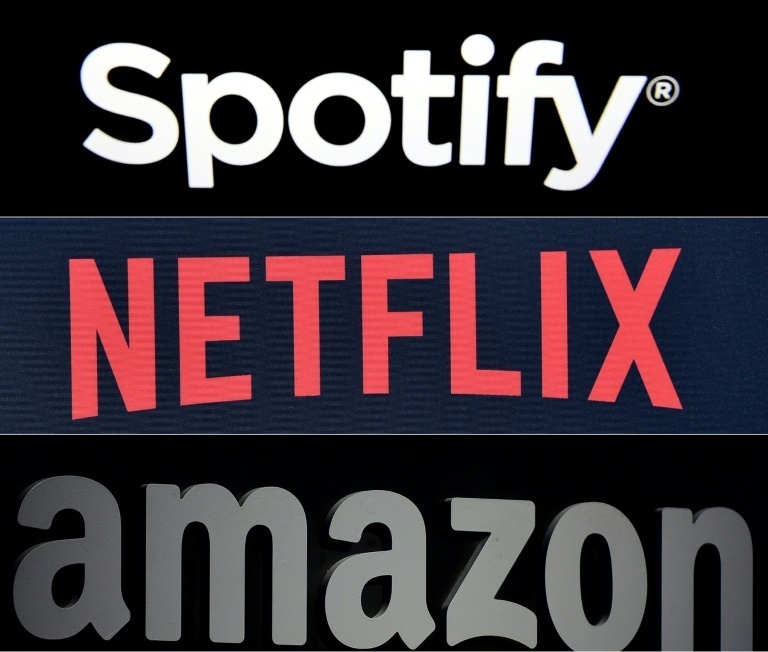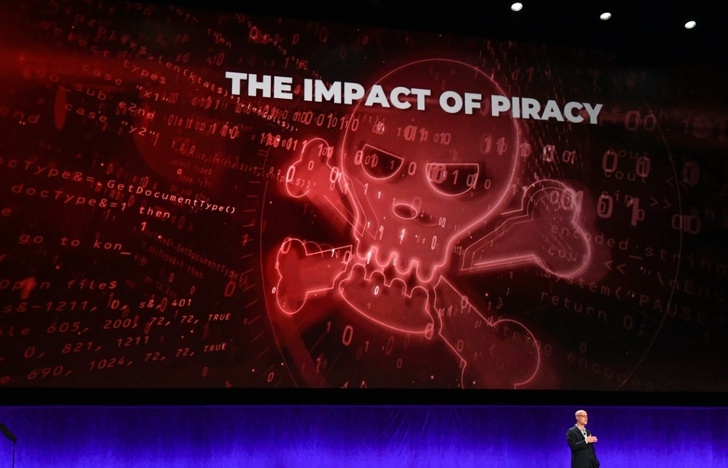Anti-piracy authorities say they have cracked down on illegal streaming of film and TV, but data suggests it is booming, reaching 215 billion illegal site visits last year.
That figure from Britain-based MUSO, which claims the most comprehensive data on piracy websites, shows an 18-percent increase between 2021 and 2022, covering 480,000 films and TV shows.
"It's as easy as it ever was to get illegal content," said CEO Andy Chatterley.
The entertainment industry is not giving up.
It recognises that previous efforts were counter-productive. Targeting individuals with massive fines for downloading a few movies made them look like corporate bullies, while court orders to block websites were often a whack-a-mole waste of time.
These days, they focus on the big fish -- "people buying supercars with the millions they are making out of piracy sites", in the words of Stan McCoy of Motion Picture Association, which represents Hollywood studios.
It is a key member of the Alliance for Creativity and Entertainment (ACE), formed in 2017 to coordinate anti-piracy efforts globally. It does the legwork to track down big operators and alert police.
In 2023 alone, ACE has helped shut down operators in Spain, Brazil, Germany, Vietnam, Egypt and Tunisia, each with millions of monthly users.
The organisation claims clear results, measured in prison sentences for operators and reduced options for users. ACE says the number of illegal subscription services has dropped from 1,443 to 143 in the United States on its watch.
- Finding excuses -
But free entertainment is still easy to find.
An inexperienced AFP reporter took just a few minutes to Google a list of illegal streaming sites and access the latest episodes of hit shows "Succession" and "White Lotus" without any sign-up or payment.

The r/piracy discussion board on Reddit has 1.2 million members and every conceivable justification for their hobby, from the cost of legal streaming sites to lack of access in certain countries to vague anti-capitalist diatribes.
Some are disarmingly frank: "I don't have any excuses. I could afford to pay for it all if I wanted, but instead of giving my money to some media company's CEO who makes a thousand times what I do, I'd rather just save the money for my own retirement," wrote Reddit user ScarecrowJohnny.
One factor dominates at the moment: the explosion of streaming options, with content now spread across increasingly pricey subscriptions to Netflix, Amazon, Hulu, HBO and many more.
"I was paying for one or two, but now there's 50 of the damn things and everything in the world costs more practically every day, so I went back to piracy," wrote Reddit user Jaydra.
The watchdogs are unimpressed.
"People always find an excuse for piracy. It used to be there wasn't enough choice -- now it's too much," said McCoy.
- 'A lot of progress' -
Ironically, as the streaming environment fragments, MUSO's piracy data has become one of the most accurate ways for media companies to measure which films and shows are genuinely popular.

"There is no platform bias, no cost bias, no access bias. You see what people actually want to watch."
"We have clients who see what's popular on piracy websites and then go buy it for their platform."
Since eliminating piracy is unrealistic, perhaps the most important goal for the industry is ensuring it does not become normalised.
"We've made a hell of a lot of progress to make it less easy," said McCoy. "If people are dedicated to breaking the law, they will do. But it should be a marginalised activity, not mainstream."
er/ekf/bp
© Agence France-Presse
Your content is great. However, if any of the content contained herein violates any rights of yours, including those of copyright, please contact us immediately by e-mail at media[@]kissrpr.com.
Source: Story.KISSPR.com

